2 sets of twins in a year: Florida couple shares journey of having four premature babies
JACKSONVILLE, Fl. — When Nicolas del Rosal found out in 2022 that his wife, Megan Cosgrove del Rosal, was expecting multiple babies, the news took a minute to sink in.
The Jacksonville couple discovered they were expecting twins — again.
Mateo and Celeste were born in December 2021. Ezra and Melody were born in December 2022. All four babies were premature and the newborns remain hospitalized with a range of medical issues. For a time, the family was unsure either of them would survive.
The family refers to the first set of twins as the Alphas and the second set as the Bravos. Both Nicolas, 26, and Megan del Rosals, 23, are stock traders adjusting to raising four babies.
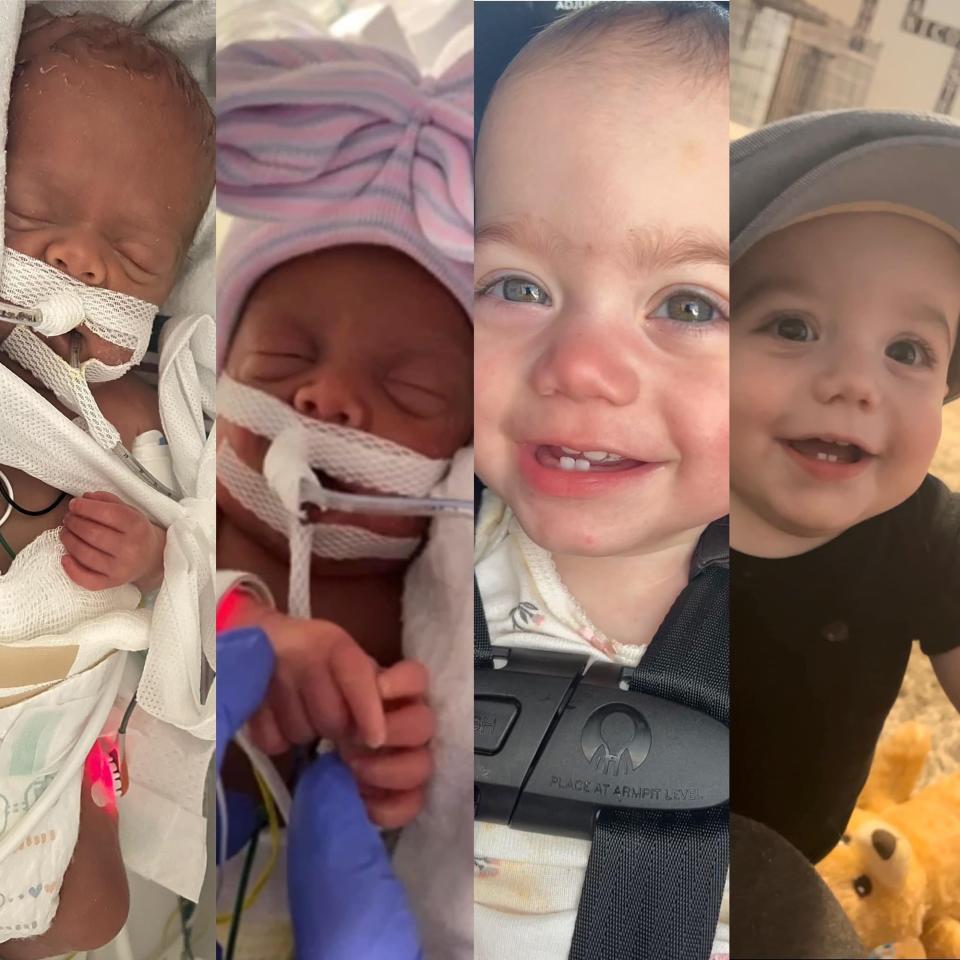
"My whole life I wanted to be a mom, and so while it’s tiring and stressful, at the end of the day it just feels so rewarding because I know I wouldn’t want it any other way," Megan del Rosal said.
"I was not expecting to have four kids within a year of each other when I was wishing to be a mom. And yeah I definitely at times feel super defeated and just sit down and cry," she said, "but one of the Alpha twins always comes over and it kinda just makes everything feel OK again, even for just a moment."
How unusual are two sets of twins in the same family?
Twin births don't run in either families,and both sets are fraternal twins conceived without fertility treatments
Fraternal twins — the most common kind of twins — occur when two separate eggs are fertilized by two different sperm, according to the Mayo Clinic. Each twin has his or her own placenta and amniotic sac.
"Any woman who has had a set of non-identical twins without any assisted reproductive technique naturally has a higher chance of having another set of non-identical twins when compared to the general population," said Dr. Maryam Abubakar, an attending neonatologist at Wolfson's neonatal intensive care unit, where Ezra and Melody are receiving care.
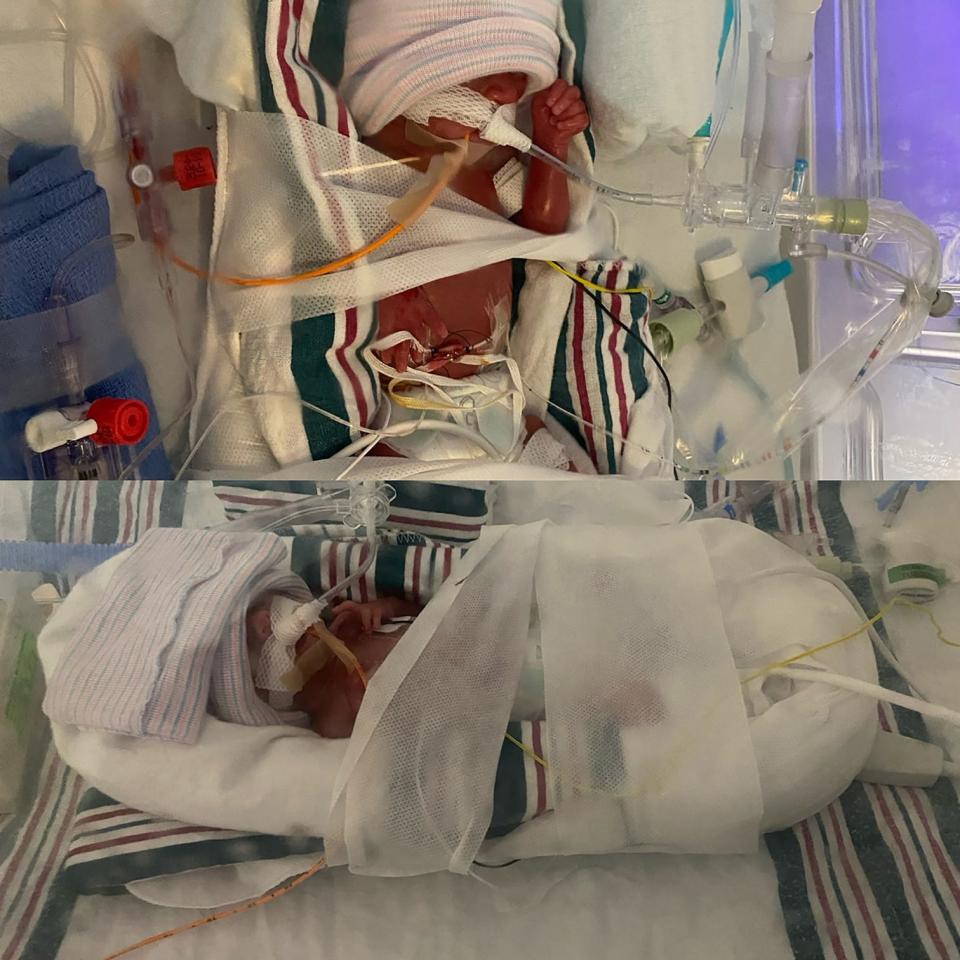
Those women have a "tendency of hyper ovulation," which often persists through their reproductive age, she said. So they will always have a "high chance that more than one egg gets fertilized."
"There is a strong genetic predisposition to having non-identical twins, usually inherited by daughters, but this trait has been known to skip generations," Abubakar said.
Chance of having twins is low
The twin birth rate rose by 76% between 1980 and 2009 but declined 4% between 2014 and 2018 in the United States – the lowest rate in more than a decade, according to a BabyCenter article reviewed by the website's medical advisory board. The steady downward trend in multiple births is likely due to the improvements in fertility treatments, according to the author.
In 2021, there were 114,161 twin births and the twin birth rate was just slightly over 3% of births, according to CDC.
The number of triplet births was far smaller at 2,933, and the number of quadruplet or higher births was even smaller at 148. The rate of triplet or higher births is 80 per 100,000 live births.
More: Twins times two: Alabama couple has two sets of identical twins in 13 months
More: Quintuplets born at a Mississippi hospital in uniquely rare pregnancy
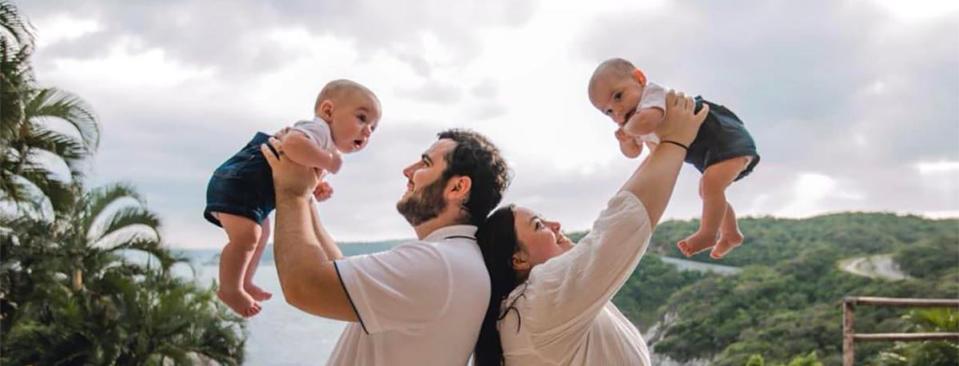
According to the U.S. Centers for Disease Control and Prevention, tracking twin birth rates is important because "twins are at greater risk than singletons for poor outcomes, including preterm birth and neonatal morbidity and mortality."
All del Rosal 'preemies' face challenges
The first set of twins was born prematurely at 32 weeks.
Labor began at 27 weeks, but doctors at Baptist Medical Center South were able to pause the contractions, buying the babies another five weeks of in-utero growth, del Rosal said.
After their birth, they started their lives in the neonatal intensive care unit.
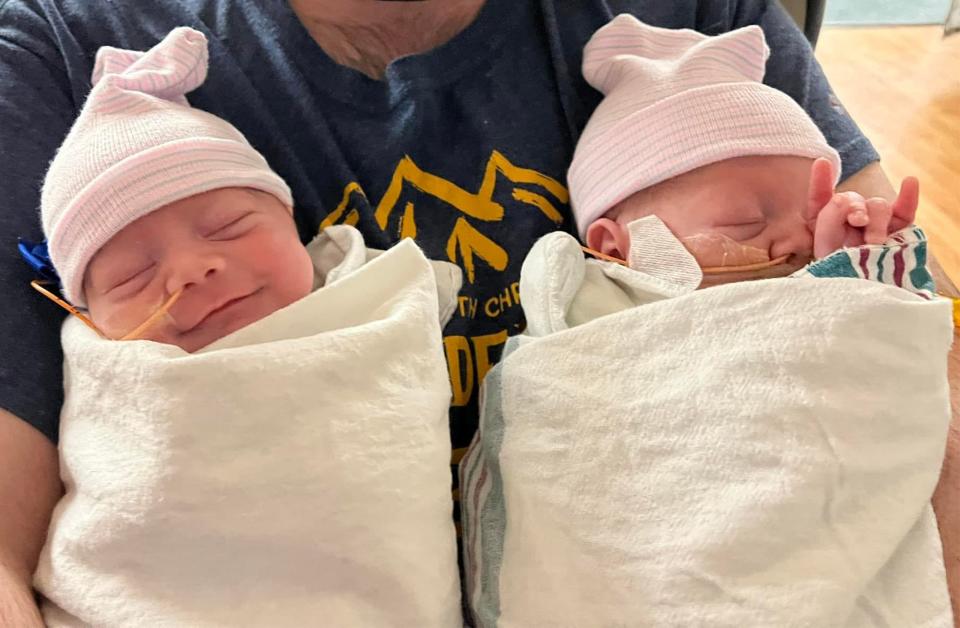
Their son Mateo had Bradycardia, which is when the heart rate slows, followed by pauses in breathing. The condition is common in premature babies, usually because of immature nervous systems. Mateo went home after six weeks.
Their daughter Celeste needed time to learn how to eat without a feeding tube and remained hospitalized for seven weeks.
Because the first babies were premature, del Rosal was high risk for the second pair coming early as well.
At 25 weeks, she went into preterm labor and had to deliver babies that weighed less than 2 pounds each after doctors realized that Ezra’s umbilical cord had a dangerously low amount of blood flowing through.
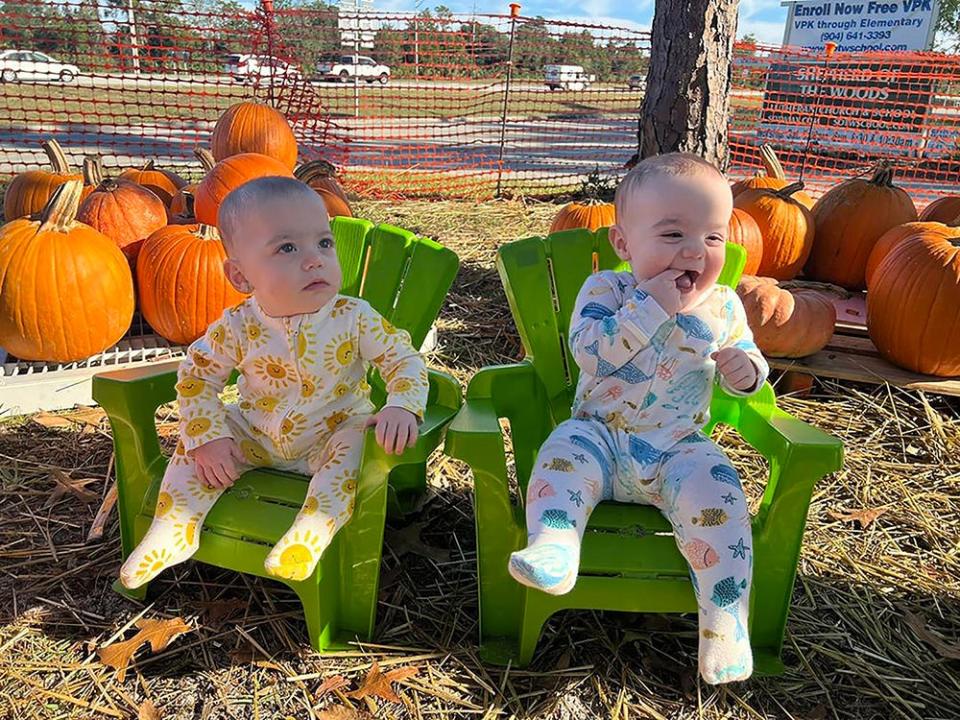
Melody's lung collapsed at only a few hours old and she was diagnosed with a brain bleed. Within a few days, she had a perforated bowel and needed surgery and later had surgery to repair a hole in her heart.
Ezra also needed surgery for a perforated bowel and, because the amount of blood infusions needed, developed a rare "level 4" brain bleed, the most severe kind. Blood was getting into — and damaging — the brain tissues.
"We do not know how much damage it will be until the brain bleed breaks up more. Megan and Nicolas were told you could see 10 different babies with the same brain bleed and have 10 different results, from severe cerebral palsy to a few learning disabilities," Cosgrove said.
Now 9 weeks old, both the babies are improving, weighing in at 3, almost 4, pounds each. Melody might come home in April or May, Ezra in June or July.
The del Rosals have medical insurance that "covers a lot of things," but still have had substantial out-of-pocket expenses. The family created a GoFundMe for anyone who wants to help by donating.
"There is still a lot of unknown," particularly to do with Ezra and his potential brain damage, he said. "Even the best case will require a lot of extra needs."
This article originally appeared on Florida Times-Union: FL couple that had 2 sets of twins in 1 year shares harrowing journey

